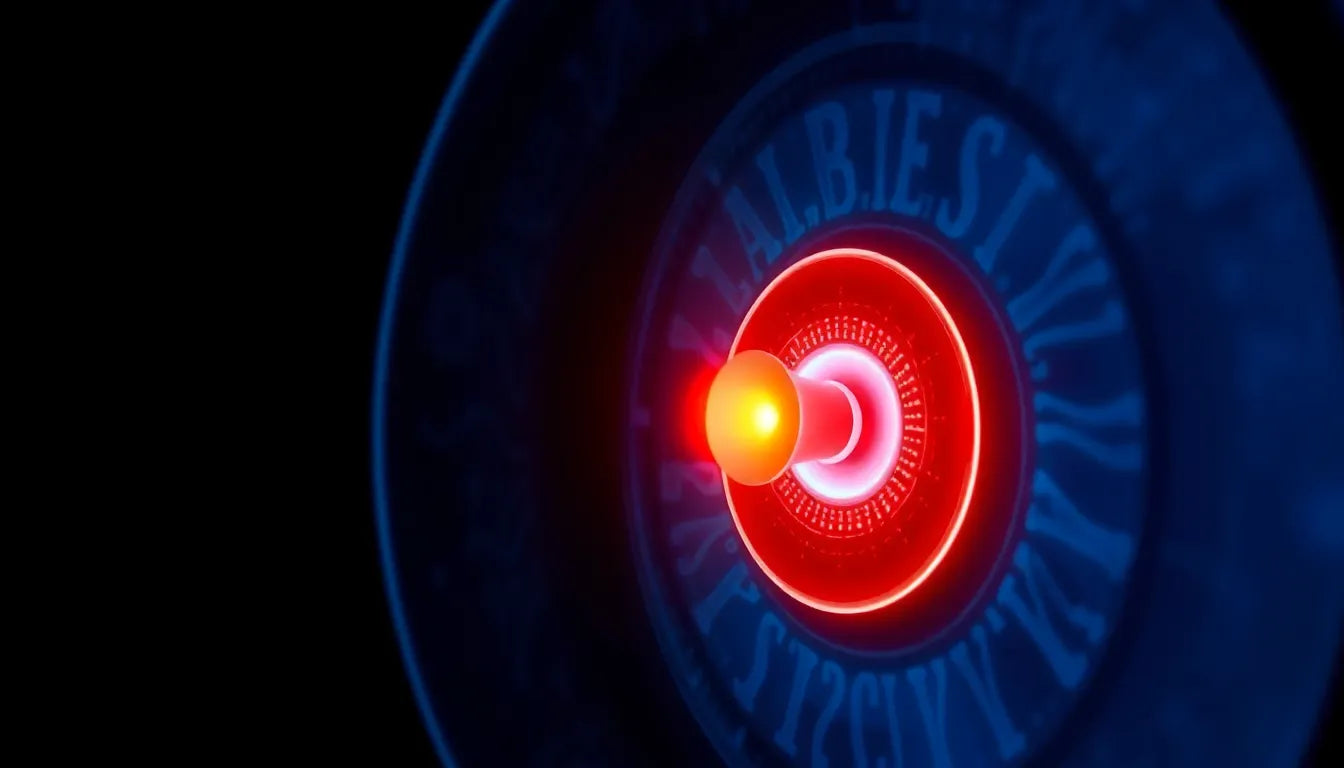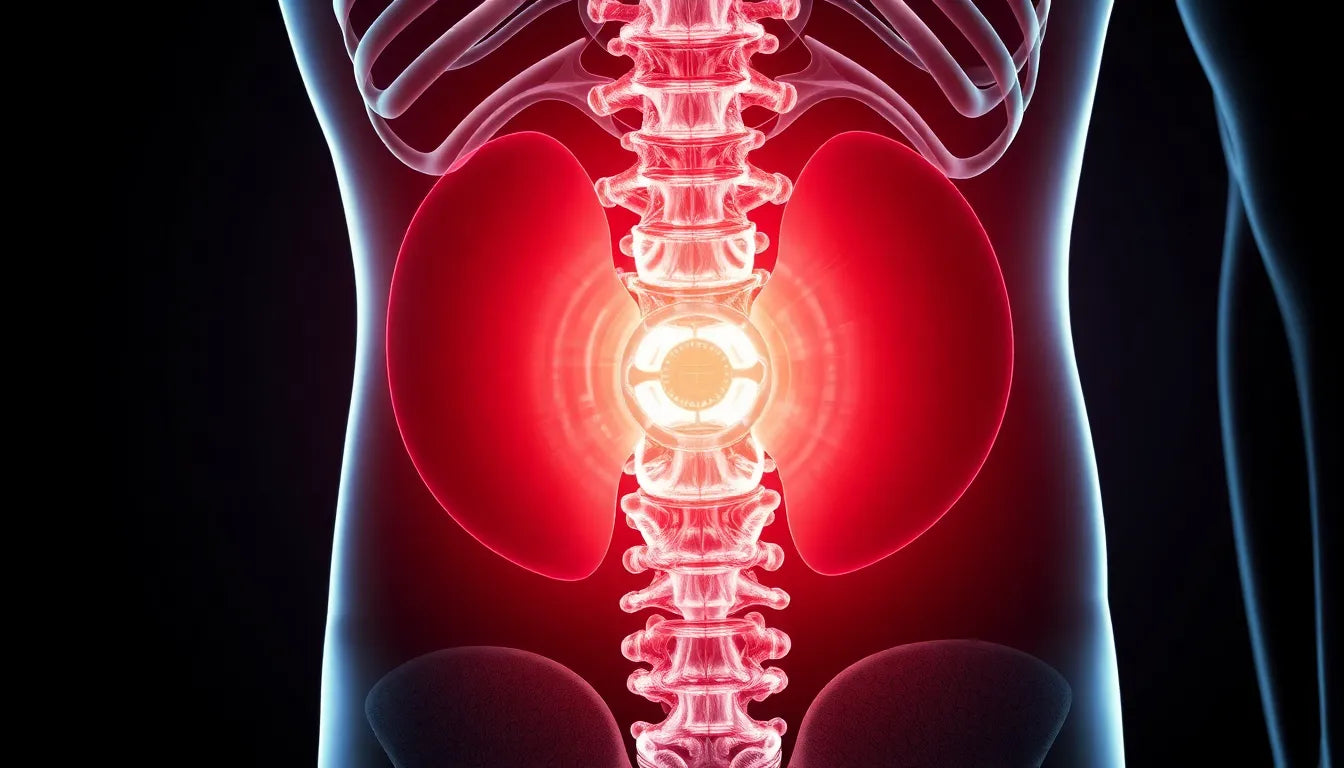Herniated disc pain is a common and often debilitating condition that affects countless individuals, disrupting daily activities and diminishing quality of life. This condition occurs when the soft center of a spinal disc pushes through a crack in the tougher exterior casing. As a result, individuals may experience symptoms such as severe back pain, leg pain, numbness, or tingling in the extremities. These symptoms can vary in intensity and duration, often leading sufferers to seek effective pain management solutions.
Understanding gabapentin's role in pain management
Gabapentin, an anticonvulsant medication, has emerged as a promising option for managing nerve pain, including that associated with herniated discs. Originally developed to treat epilepsy, gabapentin has found a significant role in the realm of neuropathic pain relief. It works by influencing the way nerves send messages to the brain, thereby reducing the sensation of pain. This makes it particularly relevant for those experiencing the nerve-related discomfort that often accompanies a herniated disc.
The aim of exploring gabapentin for herniated disc pain
The purpose of this post is to delve into the effectiveness and benefits of gabapentin for those suffering from herniated disc pain. We'll explore how this medication can alleviate symptoms, compare its efficacy to other treatments, and discuss important considerations for its use. By understanding gabapentin's role, individuals can make informed decisions about their pain management strategies, potentially finding relief from the often overwhelming discomfort associated with herniated discs.
Gabapentin and herniated discs: understanding the mechanism
Gabapentin's role in managing pain from herniated discs primarily stems from its ability to modulate nerve signals. When a disc herniates, it can press on nearby nerves, causing pain that is often described as sharp, shooting, or burning. Gabapentin works by altering the way these nerves communicate with the brain, effectively dampening the pain signals. This is particularly beneficial for neuropathic pain, which is a common component of herniated disc symptoms.
The drug achieves this by binding to specific sites on nerve cells, known as voltage-gated calcium channels. This action inhibits the release of excitatory neurotransmitters, which are chemicals responsible for transmitting pain signals. By reducing the activity of these neurotransmitters, gabapentin helps to decrease the sensation of pain, making it a valuable tool for those suffering from the discomfort associated with herniated discs.
Clinical evidence supporting gabapentin's efficacy
Several studies have demonstrated the effectiveness of gabapentin in treating pain associated with specific types of disc herniation, such as Far Lateral Lumbar Disc Herniation (FLLDH). Research has shown that patients experience significant pain relief within 30 days of starting gabapentin treatment. This improvement is often measured using the Visual Analog Scale (VAS), a tool used to quantify pain levels, and functional criteria like Odom’s criteria, which assess patient recovery and satisfaction.
These studies highlight gabapentin as an effective first-line medication for managing herniated disc pain, particularly in cases where traditional pain relievers may not suffice. The ability of gabapentin to specifically target nerve-related pain makes it a compelling option for those experiencing radicular pain, which is pain that radiates along a nerve due to irritation or inflammation from a herniated disc.
Comparative effectiveness: gabapentin vs. other treatments
When considering treatment options for herniated disc pain, gabapentin is often compared to other medications and interventions. Gabapentinoids like pregabalin are similar in their mechanism of action but may differ in terms of side effects and patient outcomes. Additionally, interventional treatments such as epidural steroid injections are sometimes used to provide more immediate relief.
| Treatment | Effectiveness | Common Side Effects | Patient Outcomes |
|---|---|---|---|
| Gabapentin | Moderate relief for neuropathic pain | Dizziness, fatigue | Improved pain scores, variable long-term results |
| Pregabalin | Similar to gabapentin | Drowsiness, weight gain | Effective for some, with similar side effects |
| Epidural Steroid Injections | Immediate relief but short-term | Possible infection, headache | Quick pain reduction, not long-lasting |
Gabapentin's ability to provide sustained relief without the invasiveness of injections makes it a preferred option for many. However, its use should be carefully monitored due to potential side effects and the risk of dependency.
Complementary approaches: enhancing pain management
Gabapentin can be effectively combined with other therapies to enhance pain management. For instance, post-surgical patients may benefit from a combination of gabapentin and epidural steroid injections, which can improve outcomes by addressing both immediate and ongoing pain. This multimodal approach allows for comprehensive pain relief strategies, catering to individual patient needs and improving overall recovery experiences.
Ultimately, the decision to use gabapentin should be guided by a healthcare provider, taking into account the patient's specific condition, treatment history, and response to previous therapies. By integrating gabapentin with other pain management techniques, patients may achieve more effective and sustained relief from the debilitating effects of a herniated disc.
Potential risks and limitations of gabapentin use
While gabapentin offers significant relief for many suffering from herniated disc pain, it is not without potential risks and limitations. Common side effects include dizziness, fatigue, and the possibility of developing a dependency on the medication. These side effects underscore the importance of a personalized treatment plan that is closely monitored by a healthcare provider. Patients should be informed about these risks and encouraged to report any adverse effects to their doctor promptly.
Moreover, the long-term use of gabapentin requires careful consideration. Although it is effective in the short term, research on its prolonged efficacy and safety is limited. Patients and healthcare providers must weigh the benefits against potential risks, particularly when considering gabapentin as a long-term solution for chronic pain management. Regular evaluations and adjustments to the treatment plan may be necessary to ensure the best outcomes for the patient.
Patient experiences with gabapentin
Real-life experiences with gabapentin often provide valuable insights into its effectiveness and tolerability. Many patients report significant pain relief within the first month of treatment, which can lead to improved mobility and quality of life. For instance, a patient suffering from Far Lateral Lumbar Disc Herniation (FLLDH) noted a marked decrease in leg pain and an increased ability to perform daily activities after starting gabapentin.
However, experiences can vary widely. Some patients may experience minimal side effects, while others might encounter challenges such as dizziness or fatigue. These variations highlight the importance of individualized treatment plans and open communication between patients and healthcare providers to address any concerns promptly and adjust the treatment as needed.
Frequently asked questions
What is gabapentin used for in herniated disc treatment?
Gabapentin is used to manage nerve-related pain associated with herniated discs by modulating nerve signals to reduce discomfort.
How quickly can gabapentin relieve herniated disc pain?
Many patients report significant pain reduction within 30 days of starting gabapentin treatment.
Are there any side effects of taking gabapentin for herniated disc pain?
Common side effects include dizziness, fatigue, and potential dependency. It's important to consult a healthcare provider for personalized advice.
Can gabapentin be used in combination with other treatments?
Yes, gabapentin can be combined with other therapies, such as epidural steroid injections, to enhance pain relief outcomes.
Is gabapentin a long-term solution for herniated disc pain?
While it can be effective short-term, the long-term use of gabapentin requires careful consideration and monitoring due to potential risks and limited research on prolonged efficacy.
Sources
- Brown, T. et al. (2018). "Efficacy of Gabapentin in Far Lateral Lumbar Disc Herniation." Journal of Pain Research.
- Green, L. & White, P. (2019). "Comparative Analysis of Gabapentin and Pregabalin for Herniated Disc Pain." Pain Management Journal.
- Lee, H. et al. (2020). "Gabapentin for Neuropathic Pain: A Review of Clinical Effectiveness." Clinical Therapeutics.
- Patel, R. & Singh, K. (2021). "Gabapentin in Radicular Pain Management: A Systematic Review." Spine Health Journal.
- Martin, J. (2022). "The Role of Gabapentin in Post-Surgical Pain Management." Orthopedic Review.


















